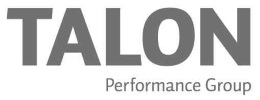References – please submit your references. Do you have any references? How many times have you been asked for references – proposing to a new client, bidding on an RFP, interviewing for a new job, applying for membership or a board seat. We all get the same question, but our reaction to the question makes all the difference. References can make you, break you or keep you in neutral. In this hypercompetitive, constantly evolving environment, find out how to make references your secret weapon in achieving career success.
What a Difference a Reference Can Make.
There are three kinds of references: Make You, Break You and Keeping You in Neutral.
References that MAKE YOU
This reference happily reports his or her experience working with you and provides detailed examples which also meet the requirements of the new position or project you are seeking.
It is not enough for a positive reference to simply know who you are when someone calls on your behalf. Make You references are those that can speak to specific examples of performance, the difference you made or a success you contributed to. They are the
references that can share a story demonstrating who you are in the workplace. They create the confirmation that your interview process has already established, and give the extra push employers need to want to hire you.
References that BREAK YOU
This reference either merely confirms your dates of employment, title and compensation, or worse, this reference remembers working with you for all of the wrong reasons – and
boy, do they remember every detail of working with you! OK, everyone thinks: “Who would give out a reference that wouldn’t say good things about you?” Guess what – it happens, especially in the Midwest where passive aggressive communication is common. To your face someone may say, “Sure, I will be a reference for you,” but then when the call comes, and pressed with “Off the record, tell me how it really was working with them,” they do tell, but with selective memory. Our perceptions are powerful and while good experiences become better, bad experiences become worse. Much worse.
References that Keep You in NEUTRAL
This reference confirms you did the job. It was fine, but unremarkable. Sure, they’d work with you again, but you’re somewhat fungible. These are the standard, “everyone gets the same response, we are going through the motions and checking off our to-do list” references. They don’t forward your candidacy and they don’t necessarily hurt your candidacy. But consider whether they are a missed opportunity – could a Make You reference have been provided instead?
Your job in compiling a reference list is to determine who will be your best cheerleaders. Realistically consider whether a potential reference is actually good or merely neutral, and confirm you aren’t providing any Break You references.
Preparing MAKE YOU References
When employers or potential clients ask for references, they are primarily asking about two basic characteristics:
1. substantive and technical ability – do you have the hard skills, knowledge or expertise for the job
2. organizational “fit” – the soft skills – are you good to work with as defined by that organization’s culture, values, etc.
When evaluating a potential reference, applicants should consider who in their professional lives can speak both to their expertise and to their interpersonal skills. This group can include current and former supervisors, peers and clients. Others sources are volunteer or community groups where you have a significant responsibility, like a seat on a charity’s board of directors. In all instances, employers want to hear stories about your performance, how you helped achieve a difficult goal, met or beat a deadline, managed challenging personalities, and yet were always pleasant to work with.
Ask First; Plant the Seed. Once you identify a list of Make You references, confirm a reference’s willingness to serve – yes, you have to ask them! This highlights the upcoming change and weeds out potential Break You references. That said, the best time to ask for a reference is before you need it, following the close of a successful project. When you ask later for a specific opportunity, it is easier to say yes again.
Prime the Pump. Lawyers are good at asking leading questions; this is the perfect time to employ that skill. It is critical to prepare your reference for the questions he or she is likely to be asked by the employer. You also want to identify the exact traits you want them to advertise about you, specifically tailored to the job you are seeking. They may have plenty of stories about you, but you want them to share the right stories for this opportunity. “Bob, remember when we worked an all-nighter to get that brief done? You told me you really valued my persistence and attention to detail.” Remind them of the stories you want them to share – it makes it easier for them to take the inevitable call and helps shape that conversation in a beneficial manner.
Presentation Matters. Don’t just email a list of names and numbers. Frame the contact information so it is easily digestible, perhaps as a direct response to an interview question. “I have provided Bob Harper’s phone and email. We worked on a challenging litigation matter where my persistence and attention to detail really paid off.”
Return the Favor. If it makes sense, offer to serve as a reference for your reference.
